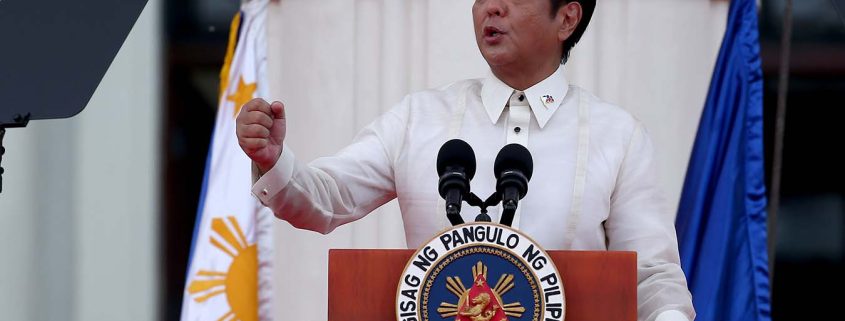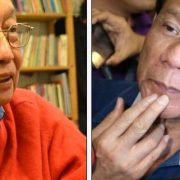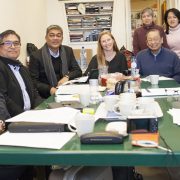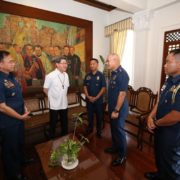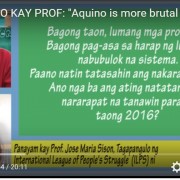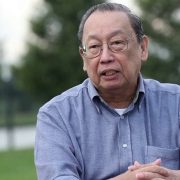Bongbong’s first veto surprises, raises questions
The Marcoses and San Miguel Corporation have a shared history
It did not take long for new Philippine President Ferdinand Marcos Jr. to exercise his veto power and against a bill seen as favorable to an entity long associated with his family: San Miguel Corporation (SMC). And it raised quick questions from one of his family’s long-time nemesis.
Marcos sent a letter to the Senate on July 1—his first day in office—explaining his opposition to the proposed law creating the Bulacan Airport City Special Economic Zone and Freeport spearheaded by SMC. Marcos said he sees “substantial fiscal risks” in the proposal as well as inconsistencies with existing tax laws that focus more on income generation for the government.
“While this administration recognizes the objective of the proposed measure to accelerate economic growth in its locality, I cannot support the bill considering the provisions that pose substantial fiscal risks to the country and its infringement on or conflict with other agencies’ mandates and authorities,” the President wrote.
The veto, however, raised questions from one of his family’s long-time nemesis, Jose Maria Sison, who wondered about Marcos’ real motive.
‘Run-away cronies’
Reacting to the news of the veto, Marcos martial law survivor Sison asked: Is the Marcos family trying to take back controlling stocks in the SMC it allegedly entrusted to the long-time chairperson of the conglomerate: Eduardo ‘Danding’ Cojuangco.
Cojuangco was regarded as among the closest cronies of the late dictator Marcos Sr. who spearheaded the Coconut Levy Fund from 1973 to 1985 worth billions of pesos. Cojuangco later used the fund to acquire and take control of both the United Coconut Planters’ Bank and the SMC.
The Corazon Aquino government, through the Presidential Commission on Good Government (PCGG), said Cojuangco served Marcos family’s financial interests through the bank and the conglomerate.
In a September 2012 decision, the Supreme court affirmed that the 27% block of SMC shares were government-owned, worth at least P71 billion at the time. The coconut farmers who were forced to contribute to the funds said the money should be given back to them.
Cojuangco died in June 2020 at the age of 85.
Long-time SMC vice chairperson and chief operating officer Ramon Ang succeeded as chairperson and chief operating officer in June 2012 after reportedly acquiring Cojuangco’s stock shares. It is under Ang that the Bulacan ecozone project started in 2018 with a corporate life of at least 50 years.
The project’s centerpiece is SMC’s P740-billion New Manila International Airport, capable of up to 100 million passengers per year and is expected to rival Philippines’ main gateway, the Ninoy Aquino International Airport.
WHAT KODAO REPORTED BEFORE: Saving Taliptip
‘Entirely his’
Department of Justice Secretary Jesus Crispin Remulla in a radio interview Monday morning said the president’s veto is entirely his decision, saying the president sees the proposed measure as disadvantageous to government. Remulla said the measure, known in the 18th Congress as House Bill 7575, will give ten years of tax incentives to SMC while similar measures only offer five to six years.
Once signed into law, the government would surrender much of its oversight powers on the airport and freeport to the powerful conglomerate, Remulla added.
As expected, Ang defended the project, saying the Bulacan economic zone will be managed by government while its tax incentives will still require Department of Finance review and approval.
“My intention is to help create (a) science and technology export hub with cheapest logistics cost because of nearest airport and Manila seaport. World-class semiconductor manufacturing power battery storage, manufacturing electric vehicles (and) manufacturing and modular nuclear power assembly plants target to export $200 billion annually to help our GDP (gross domestic product) growth,” Ang told The Philippine Star.
In a later statement, press secretary Trixie Cruz-Angeles said President Marcos fully supports the project and his decision to veto is meant to cure its “defects”.
“Presidential Veto is fastest way to cure the defects of HB 7575 especially the provision which exempts the Commission on Audit to look into the financial transactions on the special economic zone and freeport,” Angeles said. “Had the President not vetoed the HB 7575, it would have lapsed into law on July 4 or 30 days after the bill was sent by the legislature to Malacanang,” she added.
Former Senate President Vicente Sotto III said he will advise incumbent senators to re-file the bill without the provisions objectionable to Marcos.
Sison however said the new President is likely already spending time running after so-called run-away cronies like Cojuangco who may not have given back assets entrusted to them, in much the same way that the PCGG “ran after Marcos loot hidden under multi-layered schemes to conceal ownership.”
“The Ecozone will be revived as soon as the issue is settled behind the scenes?” Sison asked. # (Raymund B. Villanueva)

